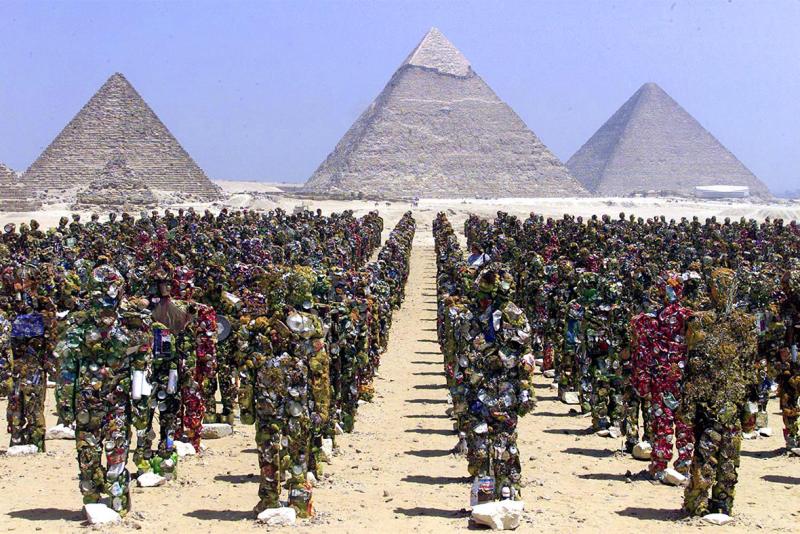Graduate Courses for Autumn 2016
CS 5668 - Studies in Orality and Literacy
Professor Sabra Weber | We 2:15PM - 5:00PM | Hagerty Hall 451 | #24753 / #24752

CS 5957.02 - Folklore in Circulation: Cultures of Waste and Recycling
Professor Dorothy Noyes | T/Th 12:45PM-2:05PM | Mendenhall Lab 129 | #32785

The Trash Class is back! This course explores the notion of the residual: what is left over, useless, unclassifiable. We will explore the customary management of communal resources, both human and material, in scarce-resource societies. We’ll consider processes of symbolic classification through which phenomena can be labelled as out of place or out of phase. We'll examine the creation of waste (and its converse, deprivation) with the codification of custom in modernity, and look at strategies by which waste is recuperated as a matter of necessity, aesthetics, or ideology. We'll look at how different kinds of leftover move in and out of systems of value: for example, the labelling of things as "junk" or "antiques," people as "trash," or ideas as "folklore." Finally, we'll think about the status of residues in social and cultural theory. Course requirements include regular Carmen discussion of readings and a research project that traces the social life of a cultural object.
Prereq: 2350, 2350H, English 2270 (270), or 2270H. Not open to students with maximum qtr cr hrs for 677.03 and 677.04. Repeatable to a maximum of 6 cr hrs.
CS 5980 - Ancient and Modern Narrative: Cognition, Affect, Ethics, Belief
Professors Sarah Johnston and James Phelan | Th 2:15PM-5:00PM | Page Hall 060 | #34294 / #34293
This interdisciplinary, team-taught course will juxtapose narratives from ancient Greece with ones from modern and contemporary United States and Great Britain as it explores the hypothesis that the power of narrative arises from its capacity to affect the lives of audiences by engaging their cognition, affect, ethics, and beliefs. By juxtaposing narratives from two different eras, we will consider what has changed and what has remained constant in the techniques, effects, and purposes of storytelling across the centuries. By studying research drawn from multiple disciplines on cognition, affect, ethics, and beliefs, we will set up a dialogue between the primary narratives and theoretical claims about engaging with narrative.
Prereq: Not open to students with credit for English 5980. Cross-listed in English.
CS 6390 - Approaches to Comparative Cultural Studies I
Professor Eugene Holland | Monday 9:10AM-11:55AM | Hagerty Hall 451 | #14225
The aim of this course is to introduce you to a range of theories and methods of cultural analysis and comparison, and acquaint you with some of the conceptual tools used in the construction of comparative studies scholarship. We will read texts by authors from diverse historical and geopolitical contexts and engage with their commentary upon the interpretation of culture. The central keyword serving as the focal point for the various theories and approaches under consideration is exchange, but we will also be addressing questions of disciplinarity, anti- disciplinarity and inter-disciplinarity; citizenship; modernity and post-modernity; global cosmopolitanism; religion; ethnicity; science; and postcolonialism. The concepts will be explored through three kinds of comparative conversation: historical, geo-political, and inter/disciplinary. The concepts will also be assessed for their use in the critical analysis and comparative study of authoritative discourses and social practices in varying socio-historical contexts.
Prereq: Grad standing or permission of instructor. Not open to students with credit for 710.
CS 7256 - Complex Ethnography
Professor Noah Tamarkin | Tuesday 2:15PM-5:00PM | Hagerty Hall 451 | #32786
Prereq: Grad standing or permission of instructor. Not open to students with credit for 706.
CS 7360 - Theorizing Culture
Professor Morgan Liu | Friday 9:00AM - 11:45AM | Hagerty Hall 451 | #23393
Prereq: Grad standing or permission of instructor. Not open to students with credit for 716.
CS 7370 - Theorizing Religion
Professor Hugh Urban | T/Th 12:45PM-2:05PM | Hagerty Hall 451 | #32787
Far from waning in significance in our increasingly globalized, technological and interconnected modern world, religion has re-emerged as a powerful force with tremendous social, economic and political implications. This course is an intensive seminar devoted to the close critical reading of a series of key theories in the contemporary study of religion. The approaches covered in this course will include: history of religions, sociology, psychology, critical theory, feminism and gender-theory, evolutionary theory and cognitive science. The authors we read will include: Jonathan Z. Smith, Bruce Lincoln, Robert Orsi, Pierre Bourdieu, Michel Foucault, Judith Butler, Grace Jantzen, Talal Asad, Pascal Boyer, and others. Students will be expected to lead class discussions, write one original research paper, and give an oral presentation based on their final project.
Prereq: Grad standing or permission of instructor. Not open to students with credit for 725.
CS 8805 - Seminar in Literature in Global Context
Professor Kwaku Korang | Wednesday 2:15PM-5:00PM | University Hall 024 | #25734
Discussion of literary texts, cultural-political documents, and theoretical discourses in global contexts.
Repeatable to a maximum of 15 cr hrs.
CS 8890 - Colloquia, Workshops, and Departmental Seminars
Professor Theresa Delgadillo | Friday 12:00PM-3:00PM | TBA | #25734
Repeatable to a maximum of 9 cr hrs or 9 completions. This course is graded S/U.
